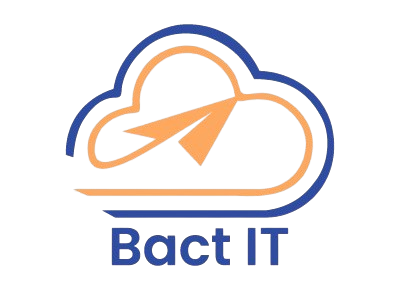RHCE

We are committed to equipping individuals and organizations with the tools and expertise they need to thrive in a rapidly changing digital world.
Request A Quote !
RHCE (Red Hat Certified Engineer) Version 9 Course Outline
Total Classes: 30
Duration per Class: 3 hours
Total Hours: 90
Module 1: Introduction to RHCE and Linux Fundamentals
📌 Class 1: Introduction to RHCE and RHEL 9
- Overview of RHCSA and RHCE certifications
- Features of RHEL 9
- Linux shell and command-line basics
📌 Class 2: Linux File System & Management
- Understanding Linux directory structure
- Managing files and directories
- File permissions and ownership (chmod, chown, chgrp)
📌 Class 3: User and Group Management
- Creating and managing users
- Understanding user authentication and password policies
- Managing groups and permissions
Module 2: System Administration and Process Management
📌 Class 4: Managing Processes & System Performance
- Understanding processes in Linux
- Using top, htop, ps, and kill commands
- Managing system performance and logs
📌 Class 5: Package Management with DNF
- Installing, updating, and removing packages
- Managing repositories
- Using DNF modules
📌 Class 6: Kernel Management & System Boot
- Managing GRUB boot loader
- Kernel tuning and boot process
- Recovering from boot failures
Module 3: Storage and File System Management
📌 Class 7: Disk Partitioning & LVM (Logical Volume Management)
- Understanding partitions and filesystems
- Creating and managing LVM partitions
- Extending and reducing LVM volumes
📌 Class 8: Mounting and Managing File Systems
- Mounting and unmounting file systems
- Working with NFS and SMB/CIFS shares
- Auto-mounting file systems using fstab
📌 Class 9: Managing Swap and RAID
- Configuring swap space
- Understanding RAID levels
- Setting up software RAID
Module 4: Networking and Security Administration
📌 Class 10: Network Configuration & Management
- Configuring network interfaces
- Managing IP addresses (IPv4 & IPv6)
- Working with nmcli and nmtui
📌 Class 11: Firewall & SELinux Configuration
- Understanding firewalld and firewall rules
- Enforcing SELinux policies
- Managing ports and services
📌 Class 12: SSH & Secure Remote Administration
- Configuring SSH for secure remote access
- Key-based authentication
- Restricting SSH access
Module 5: Automating Tasks with Bash Scripting
📌 Class 13: Introduction to Bash Scripting
- Writing and executing shell scripts
- Using variables and loops
- Implementing conditional statements
📌 Class 14: Advanced Bash Scripting & Automation
- Managing cron jobs and scheduled tasks
- Automating system tasks with scripts
- Logging and debugging scripts
📌 Class 15: Managing Services with Systemd
- Working with systemctl
- Creating and managing services
- Understanding system logs
Module 6: Advanced Networking & Security
📌 Class 16: Configuring DNS & DHCP Services
- Understanding DNS concepts
- Setting up and managing a DNS server
- Configuring a DHCP server
📌 Class 17: Apache Web Server Configuration
- Installing and configuring Apache
- Managing virtual hosts
- Securing Apache with SSL/TLS
📌 Class 18: FTP & NFS Server Setup
- Setting up and managing an FTP server
- Configuring NFS for network file sharing
- Secure file transfer methods
Module 7: Containers & Virtualization
📌 Class 19: Introduction to Containers & Podman
- Understanding containers and images
- Installing and using Podman
- Running and managing containers
📌 Class 20: Deploying Applications with Podman
- Building and running containerized applications
- Managing container storage and networks
- Troubleshooting container issues
📌 Class 21: Virtualization with KVM
- Setting up a KVM host
- Creating and managing virtual machines
- Configuring VM networking
Module 8: Ansible Automation (RHCE Focus Area)
📌 Class 22: Introduction to Ansible for Automation
- Overview of Ansible
- Installing and configuring Ansible
- Understanding YAML and inventory files
📌 Class 23: Writing and Running Ansible Playbooks
- Writing basic playbooks
- Using variables and templates
- Debugging playbooks
📌 Class 24: Managing Systems with Ansible
- Automating package installations
- Managing users and services
- Configuring network settings with Ansible
Module 9: Advanced Ansible Automation & Security
📌 Class 25: Ansible Roles & Best Practices
- Using Ansible roles for modular automation
- Structuring playbooks efficiently
- Implementing security best practices
📌 Class 26: Automating Security with Ansible
- Managing firewall and SELinux with Ansible
- Securing SSH access using Ansible
- Automating compliance tasks
📌 Class 27: Troubleshooting and Debugging Ansible Playbooks
- Identifying common Ansible issues
- Using verbose mode and debugging tools
- Log management and troubleshooting
Module 10: Final Exam Preparation & Practical Sessions
📌 Class 28: RHCE Exam Preparation & Lab Practice
- Review of RHCE syllabus topics
- Hands-on lab exercises
- Mock test simulation
📌 Class 29: Troubleshooting & Final Q&A
- Handling real-world troubleshooting scenarios
- Exam strategy discussion
- Final Q&A session
📌 Class 30: Final Mock Exam & Certification Guidance
- Full-length practice exam
- Review of mock test results
- Certification process and next steps
